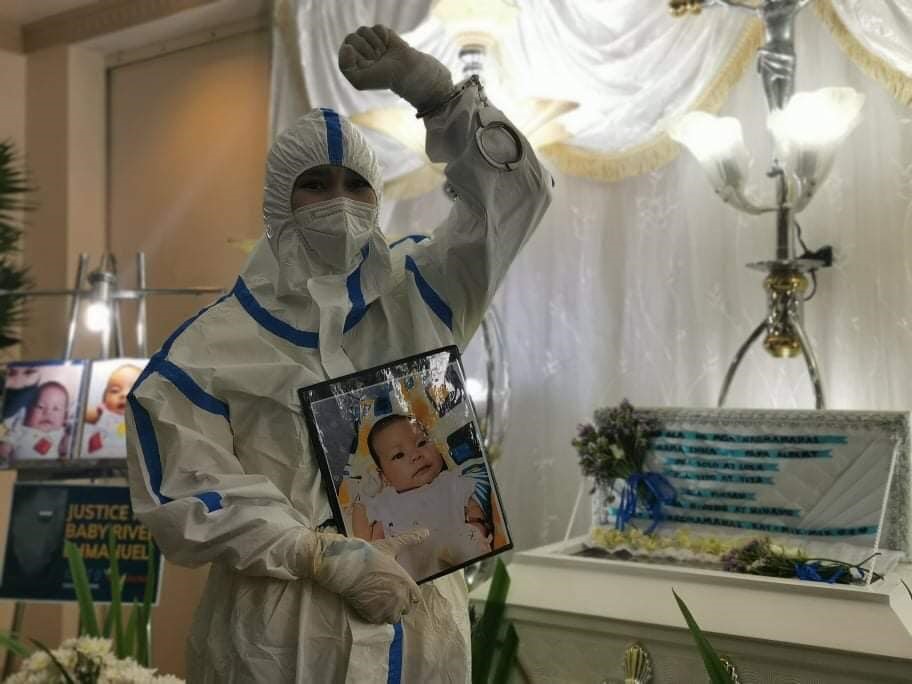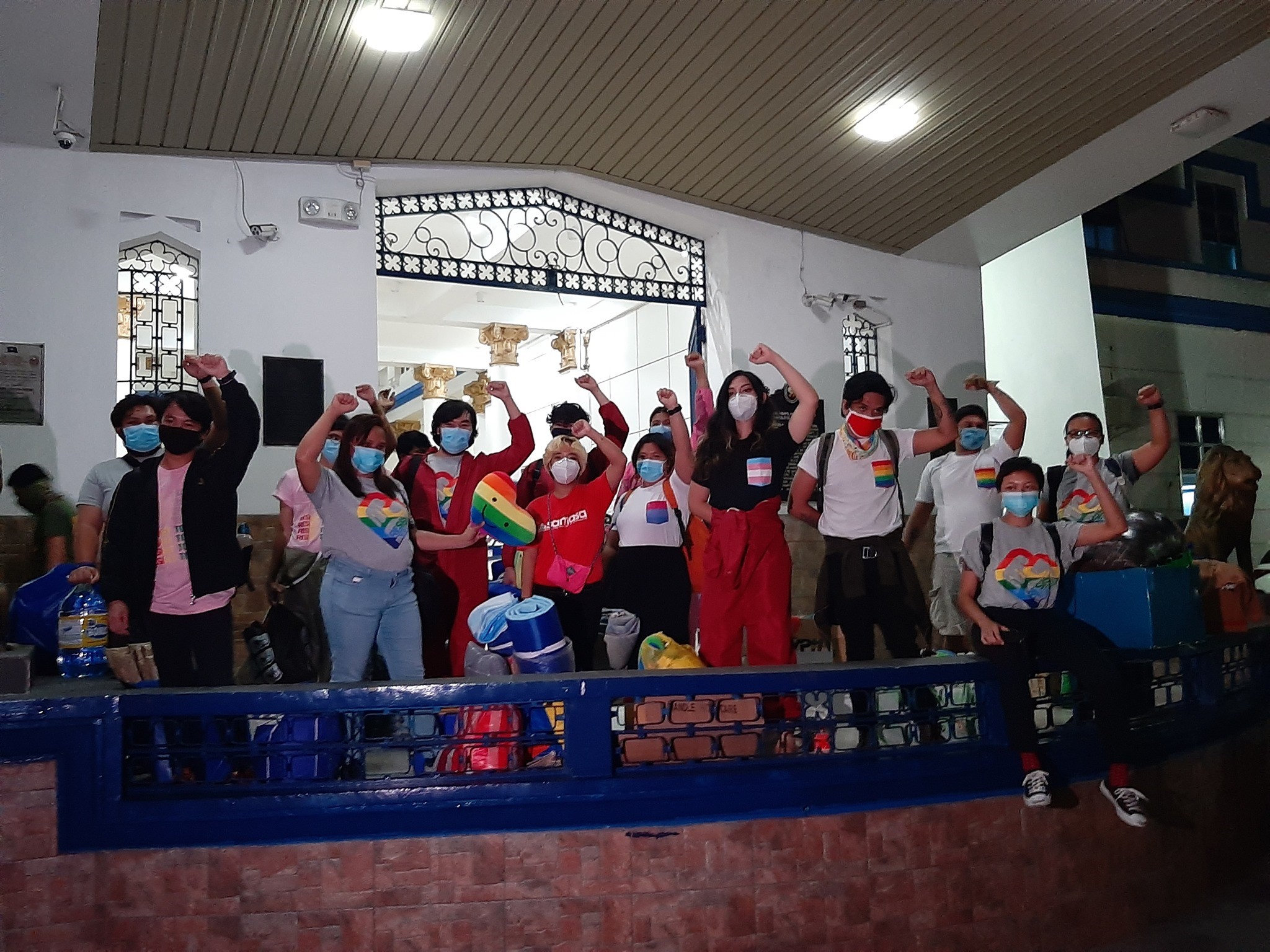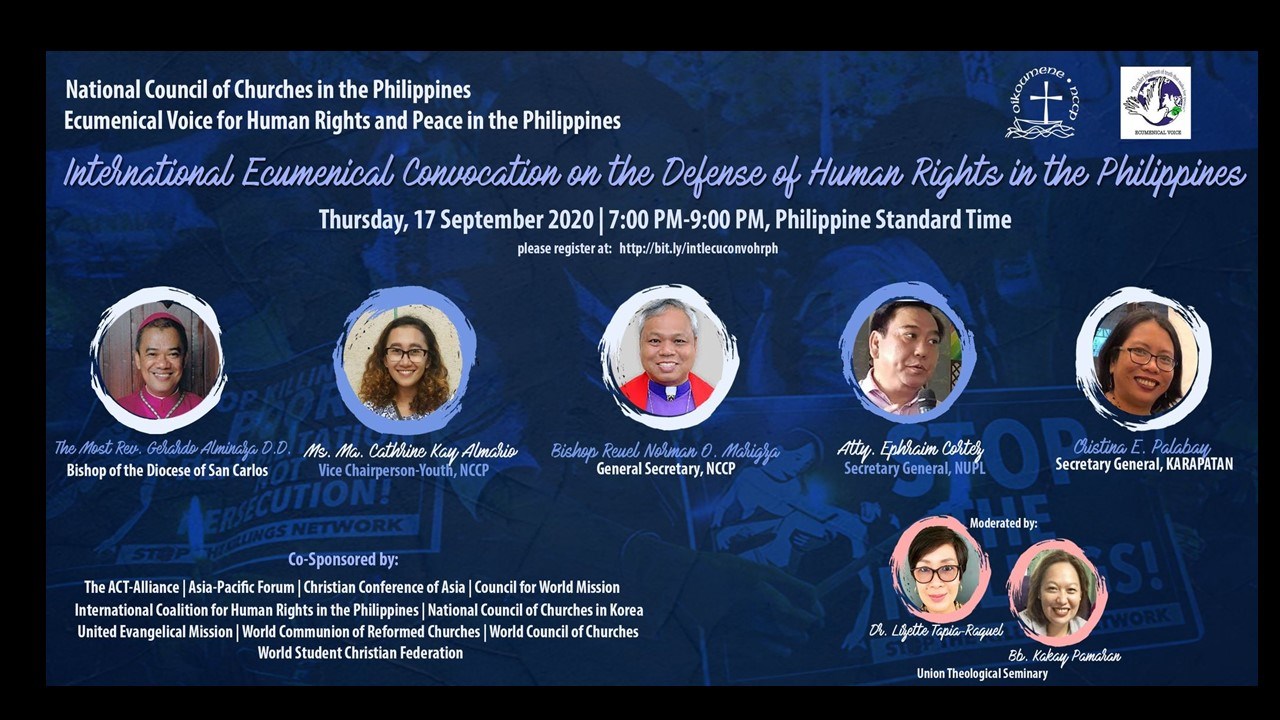A Letter from Cathy Chang and Juan Lopez, serving in the Philippines
October 2020
Write to Cathy Chang
Write to Juan Lopez Carrasco
Individuals: Give online to E200533 for Cathy Chang and Juan Lopez’ sending and support
Congregations: Give to D507588 for Cathy Chang and Juan Lopez’ sending and support
Churches are asked to send donations through your congregation’s normal receiving site (this is usually your presbytery)
Subscribe to our co-worker letters
The impact of COVID-19 on Filipino families is heartbreaking. Before the pandemic, the government had been targeting and killing activists. In the name of the pandemic, authorities have stepped up their attacks – even though those activists are trying to access food, livelihood, and other support for their communities.
Reina Mae Nasino was arrested in November 2019. Her three-month-old baby, River, died in early October. Reina requested that the judge allow her to stay longer in the hospital after River’s birth, bring River to the women’s facilities of the jail, and express breastmilk in the lactation facilities in jail – but all motions were rejected. Early during the city quarantine measures, lawyers filed a petition to the Philippine Supreme Court for the release of political prisoners who were elderly and infirm, as well as expectant and nursing mothers. After River’s birth, doctors expressed their support for Reina’s breastfeeding. When River fell ill with a respiratory infection, Reina’s lawyers submitted a motion to the judge for her to leave the detention facilities. Sadly, Reina was not reunited with River before her death, and later the judge granted Reina Mae six hours to attend her daughter’s funeral rites. (rappler.com/nation/activist-reina-mae-nasino-gets-6-hours-per-day-wake-burial-baby-river-october-2020).
In Reina’s words, “Child, I have handcuffs, but not my spirit that will continue to fight for our rights. It may hurt my heart to rest, but my love for you and the people will never be separated,” said Reina Mae. As a mother who once breastfed her daughter and a human being, I grieve with Reina. I also look forward to that day because she could not nurture her daughter in freedom or nourish her with breastmilk as the source of life. Please pray for Reina’s freedom.
Before the pandemic, a group of Filipino colleagues and PC(USA) mission personnel wrote an overture about promoting solidarity against worsening human rights situation in the Philippines. Although this overture was deferred because of a limited agenda during an online assembly, the advocacy has continued in ways such as signing a Unity Statement featured at the recent International Ecumenical Convocation on the Defense of Human Rights in the Philippines (https://www.facebook.com/1430201943955254/videos/2450748475225476). Pennsylvania Congresswoman Susan Wild introduced the Philippine Human Rights Act in mid-September, and we hope you have been able to contact your legislators (https://actionnetwork.org/letters/co-sponsor-the-philippine-human-rights-act/).
This overture included stories about state forces who have monitored, detained, and killed church leaders from global partners, the National Council of Churches in the Philippines (NCCP), and the United Church of Christ in the Philippines (UCCP). In addition to church workers, other groups of people, such as the urban poor, peasants, lawyers, and journalists, have been consistently targeted under this administration.This alarming situation reached the attention of the United Nations Human Rights Council in July 2019, when Iceland initiated a resolution that called for the Philippines to conduct an independent investigation into the human rights violations happening under the administration of Philippine President Rodrigo Duterte. The Office of the High Commission on Human Rights received reports about violations of human rights and civil liberties. In June 2020, High Commissioner Michele Bachelet called for greater accountability measures against abuses in her report to the Human Rights Council (https://news.un.org/en/story/2020/06/1067462).
During the first week of October, the UN Human Rights Council adopted a resolution calling for technical assistance and capacity building – which falls short of the initial calls for accountability and investigation. In the words of the NCCP General Secretary Bishop Reuel Marigza, “The NCCP is resolved to uphold God’s gift of human dignity. We will pursue our work with other rights defenders and with the international ecumenical community to engage with UN human rights mechanisms, the International Criminal Court, various governments and intergovernmental forums, so that those who violate human rights and undermine civil liberties will face justice and be held accountable for their transgressions. A time of reckoning shall soon come, and God will “…let justice roll down like waters, and righteousness like an ever-flowing stream” (Amos 5:24).”
Juan’s colleagues and the communities they serve have also witnessed the worsening human rights situation during the pandemic. At the Children’s Rehabilitation Center, their relief efforts were put on hold because they lacked access to transportation and permission to enter the neighborhoods they previously helped. With extra checkpoints, the authorities could easily control groups from providing help – and protesting. During Pride Month demonstrations, which coincided with anti-terror bill protests, some colleagues were arrested and detained on charges that violated public health guidelines. Soon after those protests, lawmakers signed this anti-terror bill into law that authorizes the government to detain suspects for more days without an arrest warrant because these suspects have incited actions against the government.
Our hearts are breaking open because of the people affected by school closures or operating at limited capacity. The UCCP, through its consortium of schools called CREATE, has been assessing the impacts of COVID-19 on the schools and the teachers. In March, when school was suspended before the end of the school year, some parents could not pay their full tuition fees. Families often pay fees at the end of the year. Without these revenues, the school could not pay teachers or staff. Everyone was asked to make sacrifices like salary reductions and transfers to staff who were not paid at all. Schools did not resume in June and only recently began on October 6. School enrollment has dropped by half.
With seven months of no school, little to no income or revenue, and the added struggles of urgent responses for schools, teachers, parents, and their children, are tremendous burdens for Filipino families. Not everyone has access to an electronic device or Internet connection. Since some parents could not work, families must choose which child among their children will continue studying.
Our understanding of human rights is grounded in a God whose image calls for human dignity, Jesus the Christ with his promise of fullness of life, and the Spirit who inspires us to continue working through heartbreak. Our Filipino friends have been showing us how to live in this way before and during the pandemic. Thank you for breaking your hearts open to the Filipino people through your prayers, solidarity actions, and financial support.
Your friends in Christ, Juan, Cathy, and Aurelie
![]() You may freely reuse and distribute this article in its entirety for non-commercial purposes in any medium. Please include author attribution, photography credits, and a link to the original article. This work is licensed under a Creative Commons Attribution-NonCommercial-NoDeratives 4.0 International License.
You may freely reuse and distribute this article in its entirety for non-commercial purposes in any medium. Please include author attribution, photography credits, and a link to the original article. This work is licensed under a Creative Commons Attribution-NonCommercial-NoDeratives 4.0 International License.


